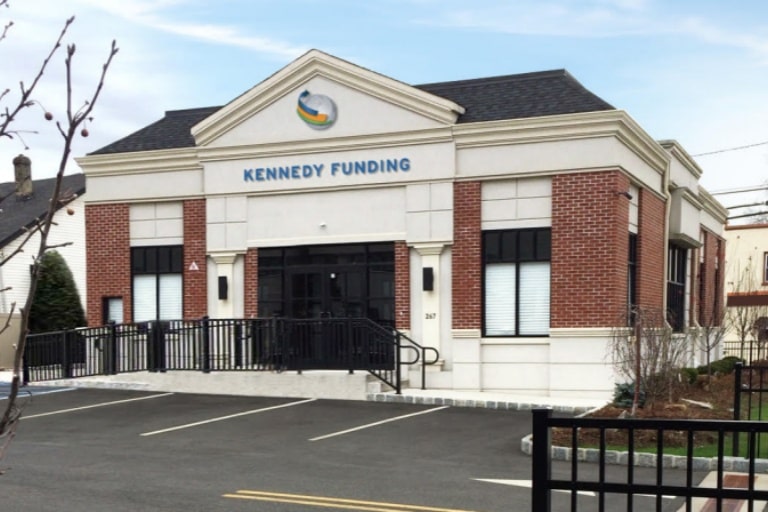When I first heard about the Kennedy Funding lawsuit, my mind immediately went to all the times I’ve had to deal with loan paperwork and financial promises that felt a little… vague.
Do you know the feeling of uncertainty when you’re about to sign a document but push it aside because you just want the money to get where it’s supposed to go? Yeah, that.
So, when I dug into what’s happening with Kennedy Funding, I realized this situation is hitting close to home for many—people like you and me who depend on lenders to keep their promises. This story matters if you’ve ever taken out a loan or thought about it.
Let’s walk through what’s going on with this case so you can avoid similar issues in the future.
What Is Kennedy Funding?
If you’ve never heard of them, Kennedy Funding is a New Jersey-based private lender specializing in “hard money” loans. They cater to cash-strapped real estate investors and developers that traditional lenders won’t touch.
Their bread and butter are bridge loans—short-term mortgages designed to “bridge the gap” until borrowers can secure long-term financing or sell their property.
These bridge loans are often considered high-risk because they’re typically granted to clients previously turned down by banks. Why? Usually, the projects are seen as too risky, or the borrower has a questionable financial profile.
However, high risk comes with some strings attached, including higher interest rates, strict repayment terms, or, in this case, legal disputes over the loan itself.
So, how does a company that’s supposed to help people get caught up in a lawsuit? Let’s get into that next.
Lawsuits Against Kennedy Funding
Kennedy Funding’s willingness to engage in complex, high-value deals has landed them in hot water more than once. And as much as their speed and flexibility make them appealing, those qualities have also led to allegations of shady business practices.
What follows are the legal battles Kennedy Funding has faced over the years:
Three Keys, Ltd. v. Kennedy Funding (2006)
The dispute centers around a significant property development in Ft. Myers, Florida, known as the Colonial DRI.
A family partnership (the Feinsteins) originally owned it but went bankrupt. To keep the project going, Kennedy Funding and Three Keys teamed up to loan the Feinsteins $16 million, with Kennedy Funding putting up the bulk of it.
When the Feinsteins defaulted, the co-lenders had to foreclose on the property. Several issues arose along the way, including environmental violations and unpaid taxes.
Kennedy Funding took control of the situation and spent a lot to settle lawsuits, pay taxes, and sell off parts of the property.
Three Keys sued for breach of contract, claiming Kennedy Funding unfairly handled expenses and kept them out of critical decisions.
A jury initially awarded Three Keys $5.3 million. However, the trial court later overturned this decision and ruled that Kennedy Funding had the right to handle the liquidation without consultation and deduct expenses before splitting proceeds.
Ultimately, Kennedy Funding kept all the money from the property sales, and Three Keys walked away with nothing.
Construcciones Haus v. Kennedy Funding (2008)
In this legal dispute, Construcciones Haus, a Mexican corporation, took Kennedy Funding to court over a failed $3–$8 million loan for a housing project in Mexico.
Construcciones paid an initial fee of $120,000 to Kennedy Funding, with more fees due at closing. However, negotiations fell apart due to disagreements over the property’s valuation.
Construcciones accused the lender of hiring an unqualified appraiser to undervalue the property. When Kennedy Funding refused to refund the initial fees, Construcciones sued.
In the legal proceedings, while the court dismissed Construcciones’ unjust enrichment claims, they allowed the company to modify and resubmit their complaint.
Ultimately, the court allowed specific claims to continue but rejected others, like the New Jersey RICO (Racketeer Influenced and Corrupt Organizations Act) claims, due to insufficient proof that Kennedy Funding operated as an “enterprise” engaged in illegal activity.

Shelton v. Kennedy Funding (2010)
Another notable case against Kennedy Funding involves the sale of a cemetery. In 1992, Virgil Shelton sold the Rest in Peace Cemetery to Willie Acklin, which he agreed to pay in installments.
When Acklin ran into financial trouble, he got a loan from Kennedy Funding. Part of the $675,000 funds was meant for Shelton, but Kennedy Funding withheld the money, anticipating Acklin might default.
When Acklin defaulted, Kennedy Funding foreclosed on the property but didn’t pay Shelton. Shelton sued, claiming Kennedy Funding violated the Arkansas Statute of Frauds.
The case reached the US 8th Circuit Court, which ruled in Shelton’s favor, awarding him $1,675,000 in compensatory and punitive damages.
Fortis Bank v. Kennedy Funding (2010)
Fortis Bank, alongside other investors, sued Kennedy Funding to recover $282 million owed by the firm. They claimed misrepresentation of risks tied to certain loans, ultimately leading to significant financial losses.
The legal battle unfolded over several years. One of the significant milestones was a ruling by the Eighth Circuit that confirmed Kennedy Funding had indeed broken its contract with Fortis.
The company tried to appeal, arguing that the court misunderstood the contract and the evidence, but the higher courts upheld the original decision. Kennedy Funding faced huge penalties and damage to its reputation.
Wrapping Up
The Kennedy Funding lawsuit shows what can go wrong in high-stakes real estate loans. The company has been involved in many lawsuits, both as plaintiff and defendant.
So, what’s at the core of these cases? A pattern of borrowers feeling like Kennedy Funding didn’t hold up its end of the deal.
For anyone considering big property deals or loans, do your homework, read the fine print, and don’t rush into signing anything. It’s much cheaper to spend time getting things right at the start than to end up fighting it out in court later.

